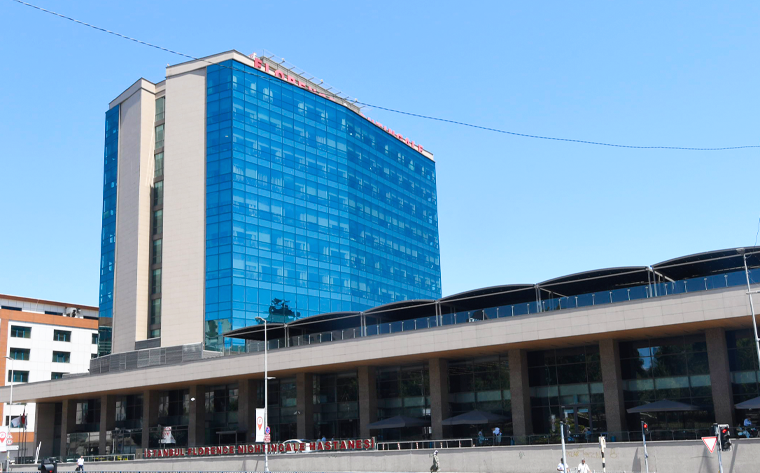
What is a Kidney Failure Polyclinic?
Kidneys are vital organs that allow the body to excrete harmful substances through urine. The kidney failure clinic is the department where research, diagnosis, follow-up and treatment of all causes and diseases that threaten health by impairing kidney functions are carried out. It enables the detection and elimination of the causes of kidney failure or, in cases where the damage cannot be repaired and in the final stage, dialysis and kidney transplantation treatments to be performed.
Kidney Failure Polyclinic Diagnostic Methods and Florence's Approach
In the kidney failure clinic, the doctor takes the patient's history and listens to the patient's complaints to diagnose the disease. Although this information constitutes important data, many tests and imaging methods are needed to diagnose kidney diseases. Some of the diagnostic methods used in the kidney failure clinic can be listed as follows:
- Blood Tests: Blood tests may be performed to determine levels of creatinine, urea, potassium, sodium and phosphorus, etc. related to kidney functions.
- Urine Tests: Urine tests provide important information about kidney function. Urine is examined both visually and under a microscope. In addition, GFR (glomerular filtration rate), which is measured by collecting urine for a 24-hour period, has an important place in the detection of kidney failure.
- Ultrason, BT ve MR: Böbrekler, ultrasonografi, bilgisayarlı tomografi (BT) ve manyetik rezonans (MR) gibi yöntemler ile görüntülenerek yapısında bozukluk ve böbrek kanallarında tıkanıklık olup olmadığı kontrol edilir.
- Kidney Biopsy: A kidney biopsy may be needed to determine the cause of kidney dysfunction.
Kidney Failure Polyclinic Treated Diseases
In the kidney failure clinic, diseases that cause loss of kidney function are identified and treatment is planned. The main diseases treated in the kidney failure clinic can be explained as follows:
- Acute Kidney Failure: Acute kidney failure is a sudden kidney failure or kidney damage that occurs over a short period of time, such as a few hours or a few days. Acute kidney failure causes waste products to build up in your blood, making it difficult for your kidneys to maintain the correct fluid balance in your body. It is very important to diagnose and treat acute kidney injury early. In this case, the damage can often be completely repaired and no permanent damage occurs.
- Chronic Kidney Failure: Chronic kidney failure is the loss of kidney function over time. Chronic kidney failure does not develop all at once, but occurs gradually. Depending on the underlying cause; as a result of progressive loss of kidney function, the kidneys become completely inoperable. When kidney function drops to 20 percent or less, dialysis or kidney transplantation is required. The main diseases that cause chronic kidney failure are diabetes, hypertension, glomerulonephritis, polycystic kidney disease, interstitial nephritis, and diseases that block the urinary tract such as prostate.
- Diabetic Nephropathy: This is the most common condition where kidney function is impaired. Diabetic nephropathy is microvascular damage to the kidneys and is one of the most serious complications of diabetes. Over time, kidney function gradually decreases. In the final stage, dialysis or a better treatment option, a kidney transplant, may be needed.
- Polycystic Kidney Disease: Under normal conditions, cyst formation in the kidneys is quite common. However, these cysts usually do not impair kidney function. Polycystic kidney disease is a genetic disease characterized by the formation of multiple cysts in both kidneys and gradually reduces kidney function. Over time, the cysts grow and kidney failure develops.
What are the procedures and examinations performed in the Kidney Failure Polyclinic?
There are many procedures and tests performed in the kidney failure clinic for the diagnosis, follow-up and treatment of the disease. Especially when it comes to kidney transplantation, many tests are needed before and after the procedure. The main procedures and tests performed in the kidney failure and transplantation clinic can be listed as follows:
- Immunological Tests and Tissue Typing: In order to make a decision on kidney transplantation, the tissue typing of both the recipient and the donor is determined and various immunological tests are applied to check their compatibility. The most commonly used tests when transplantation is needed due to kidney failure are; Cross Match (CDC), Flow Cross Match (FXCM), HLA Gene (SBT), Panel Reactive Antibody (PRA) and Donor Specific Antibody (DSA) tests.
- Radiological Imaging Methods: Radiological imaging methods such as MRI, Ultrasound and CT are needed for both diagnosis and follow-up of renal failure.
What are the Kidney Failure Polyclinic Treatment Methods and Florence's Approach?
Up-to-date and innovative methods are applied in dialysis and kidney transplantation treatments performed in the Florence kidney failure polyclinic. As pioneers of robotic kidney transplantation, transplant operations can be performed with normal surgery or robotic surgery in Florence Hospitals. The treatment methods planned and applied in the kidney failure polyclinic can be explained as follows:
- Dialysis: It is an artificial system that replaces the natural function of the kidney. Dialysis is divided into two as hemodialysis (machine) and peritoneal (abdominal) dialysis. In the hemodialysis process, the patient is connected to the device and the waste materials in his blood are separated and cleaned through a semi-permeable membrane. With dialysis; after a kind of kidney function is performed, clean blood is returned to the body. However, dialysis cannot fully perform the secretion function of the kidney.
- Kidney Transplant: The most effective treatment for kidney failure is kidney transplantation, if conditions are suitable. Kidney transplantation is an operation that can be performed on adults and children. The transplant is performed from a cadaver or usually from a suitable donor in the family.
- Kidney Cross Transplantation: Some kidney patients cannot receive a kidney from their donor due to blood type incompatibility or immunological reasons, even though they have donors. In this case, kidney transplantation can be performed from the donor of one to the recipient of the other between two couples with the same condition. There is a busy cross waiting list in our center and appropriate cross transplants can be performed.
Transplantation with Retroperitonoscopy: Since the operation is performed without opening the abdomen in the transplantation with the retroperitonoscopy method, the recovery process is quite fast. The transplantation is performed by placing a micro camera to see the kidney through a small incision made in the back of the abdomen.
What are the Health Technologies Used in the Kidney Failure Polyclinic?
Florence Hospitals apply up-to-date treatment methods in dialysis and kidney transplantation with their advanced health technologies. Micro cameras used in robotic surgery, precision operation instruments with 540-degree rotation and dialysis machines are available with health technologies at international standards.
What are the Florence Kidney Failure Polyclinic Team's Specialties and Areas of Interest?
Florence Kidney Failure Polyclinic has a large team consisting of successful surgeons, nephrologists, anesthesiologists, doctors from related medical departments, organ transplant and intensive care nurses and medical technicians. The areas of interest of experienced doctors in kidney failure include kidney transplantation, retroperitoneoscopic donor nephrectomy and immunosuppression.
What is the Relationship with Other Units from a Multidisciplinary Perspective?
The kidney failure clinic is intertwined with many departments as it deals with the conditions that cause failure and the treatments of kidney failure. It works multidisciplinary with many departments, especially nephrology and organ transplantation center. Since the clinic works on therapeutic dialysis and kidney transplantation, joint decisions are made with various medical units from general surgery to anesthesiology. Some of the medical units that the kidney failure clinic is associated with can be listed as follows:
- Pediatric Nephrology: Since kidney failure is a disease seen in children, the pediatric nephrology department works together with the kidney failure clinic to monitor kidney functions and the progression of the disease.
- Nephrology: The medical unit that the kidney failure clinic is most closely associated with is the nephrology department, which deals with kidney diseases. Kidney functions and diseases are monitored and if necessary, dialysis is applied and if necessary, necessary procedures for kidney transplantation are carried out.
- General Surgery: When kidney function drops below 20 percent due to kidney failure, a kidney transplant is necessary. Since experienced general surgeons are needed for kidney transplantation, it is closely related to the general surgery unit.
- Immunology (Tissue Typing): In order for the kidney transplant operation to be successful, the compatibility between the donor and the recipient must be determined meticulously. In this case, tissue typing plays an important role in determining the donor and making the transplant decision.
- Organ Transplant Center: In the organ transplant center, where decisions are made for transplantation of various organs such as liver, kidney, pancreas, the necessary criteria for donors and recipients are determined and followed up.
- Robotic Surgery Center: With the development of technology, robotic surgery has become a surgical option used in many areas. In kidney transplantation, the retroperitoneoscopy method, which Florence Hospitals pioneered, can be applied using robotic surgery.


